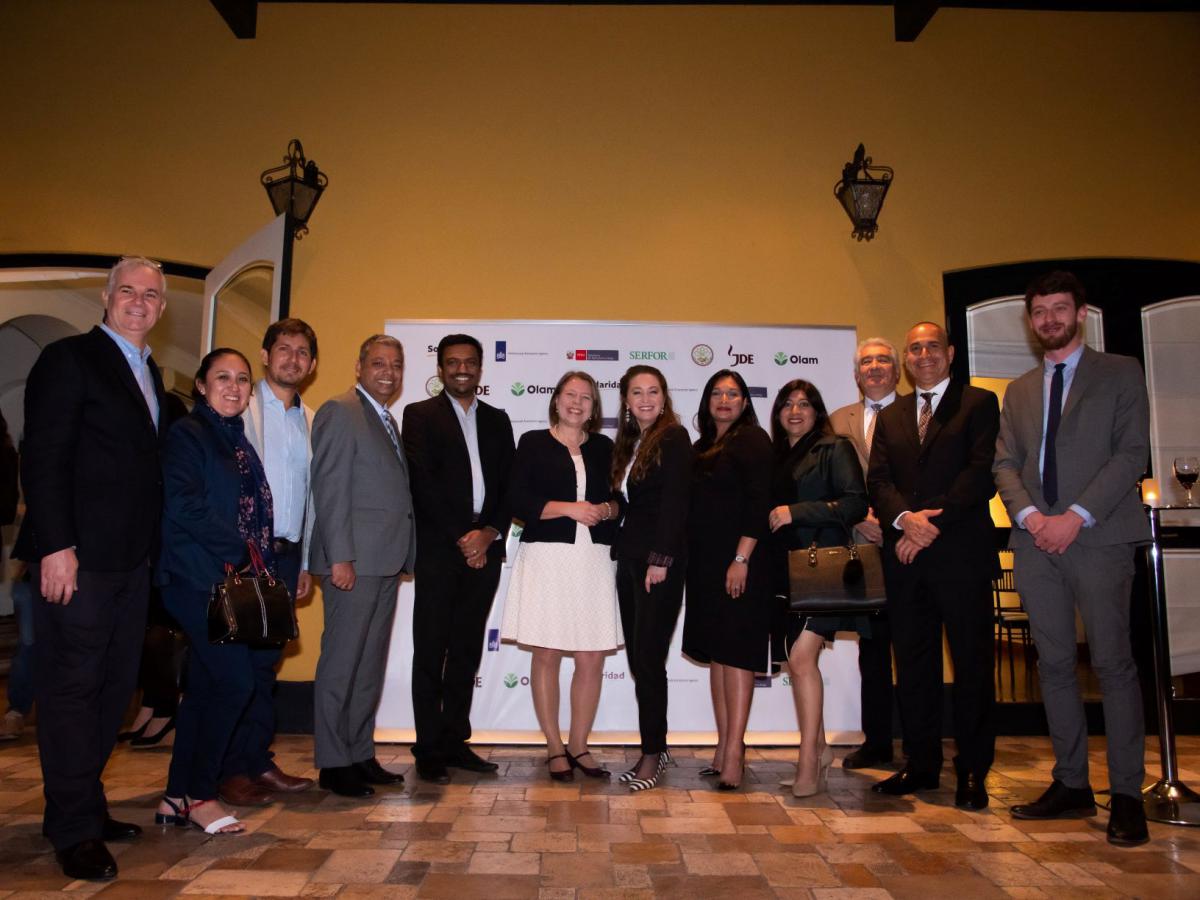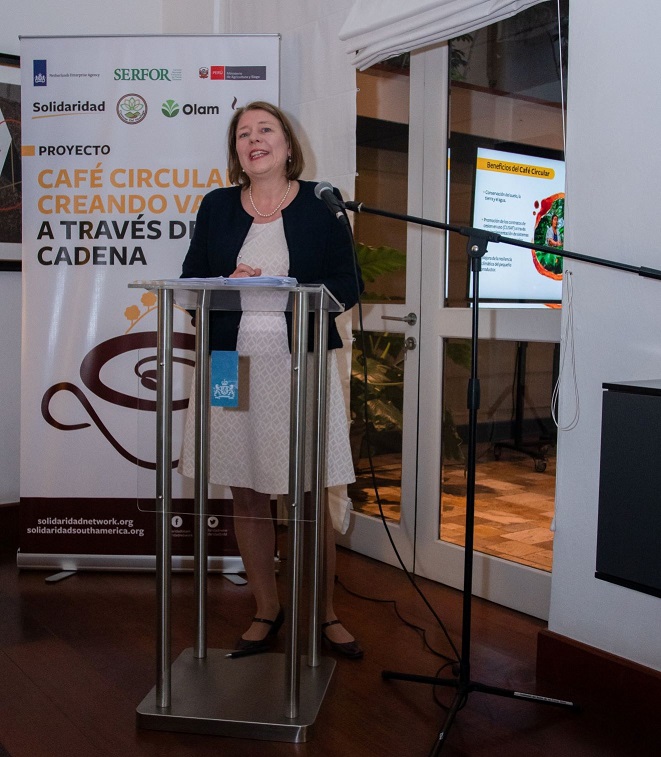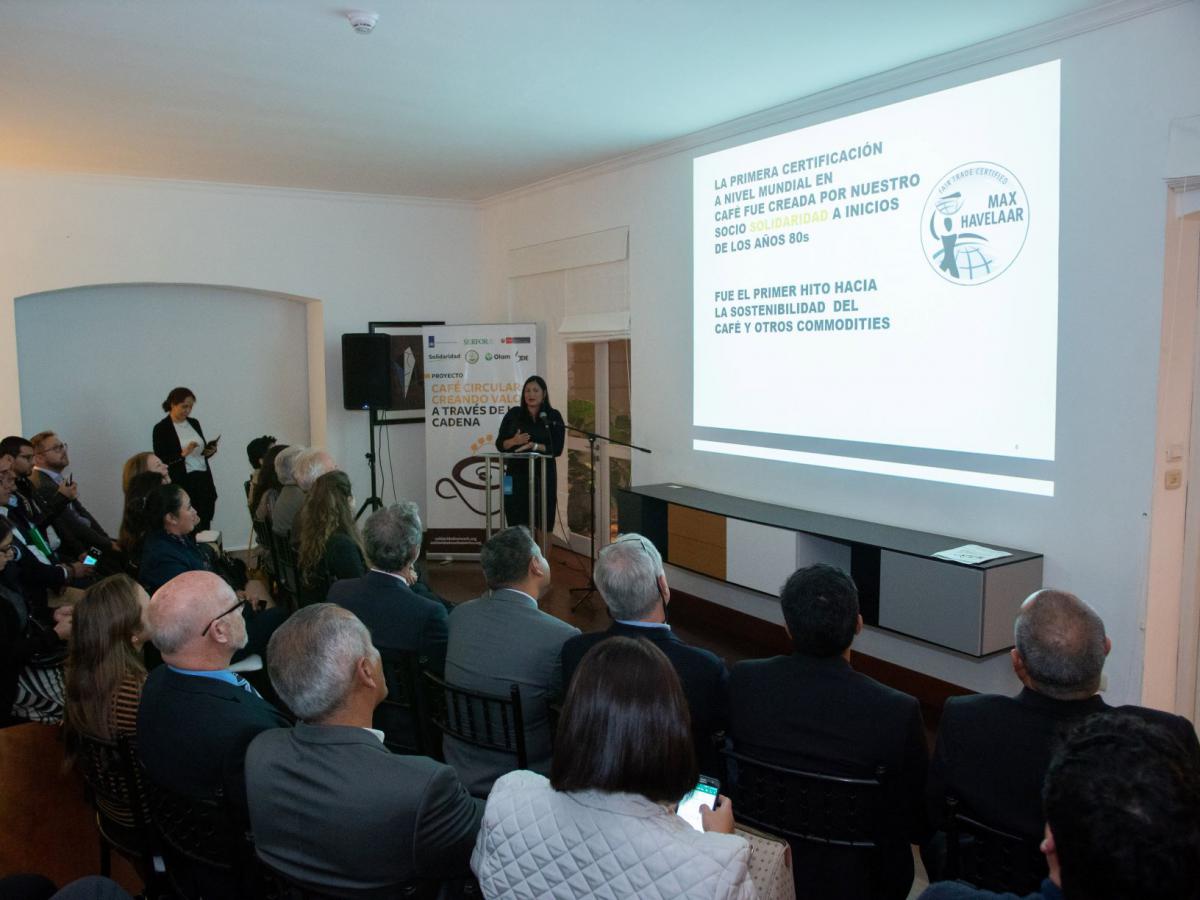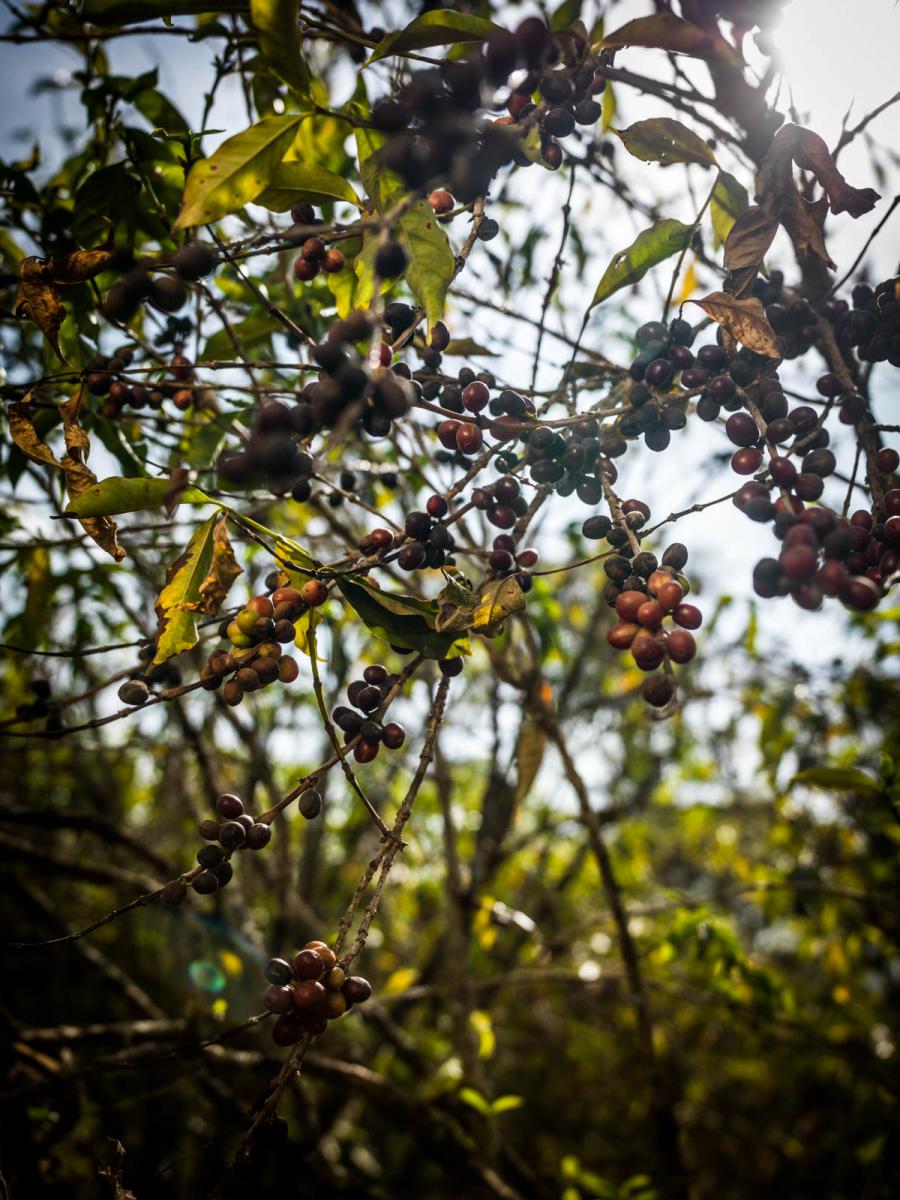
Representatives of Olam Perú, the Netherlands Embassy, JDE, Cuencas del Huallaga Coffee Farmers Association, Solidaridad, and National Forestry and Wildlife Service (Serfor) of the Peruvian Government
A clear need to become circular
Coffee is the world’s favourite beverage. We drink an estimated 400 billion cups of coffee a year worldwide to give us that caffeine kick in the morning. Coffee also helps to prevent chronic diseases. Between 2012 and 2017, coffee consumption has increased by 2% every year.
As consumption keeps growing, the strain on natural resources, the creation of waste and our contribution towards climate change will also increase. It is estimated that due to climate change, the area suitable for coffee cultivation will decrease significantly by 2050. The reasons for this include changing rainfall patterns, higher temperatures, and more frequent incidence of pests and diseases (Climate Institute, 2016). Coffee production takes up 25% of the total agricultural land in the region and it is the main driver of deforestation in Peru.
These challenges emphasize that the need for a circular economy has never been stronger. We need to rethink, redesign and reimplement our entire system, maximizing the beneficial use of resources from production to consumption. The long-term health, wellbeing, and environmental sustainability of the much beloved coffee sector should be a clear priority for everyone. Circularity hereby presents a strong case for fostering sustainability.
Launching a Circular Coffee project
Although a simple concept, properly adopting a circular economy does not happen overnight. Nevertheless, progress was made last week as project partners for ‘Circular Coffee: Creating value through the chain’ met to put the building blocks in place for the first pilot of a circular system from producers in Peru to consumers in the Netherlands.

Nathalie Lintvelt, Netherlands Ambassador in Peru
Gina Canales, Sustainability Manager at Jacobs Douwe Egberts, said: “The project will allow coffee farming families to increase their coffee production by 10%.” Moreover, Nathalie Lintvelt, Netherlands Ambassador in Peru, stated: “This initiative has a strong commitment from the Peruvian government and from our country to promote the circular economy.”
At various points in the supply chain, waste will be upcycled to create new and valuable products which will help to benefit the livelihood of coffee producers and families, and tackle key environmental challenges in the sector. The project will train coffee farmers in circular farming practices that make them more resilient to climate change and increase their profits.
Solidaridad’s technological model including circular practices considers the following elements:
- Soil conservation and management
- Shade management, making use of trees to provide shade to the coffee plants
- Recycling of biological waste into fertilizer
- Reduction of waste water by 80%
The project is a joint public private partnership between Solidaridad, Jacobs Douwe Egberts (JDE), Olam Peru, the Association of Small Producers “Cuencas del Huallaga” in San Martín, and the Wildlife and Forestry division of the Peruvian Ministry of Agriculture (SERFOR), with the support of the Netherlands Enterprise Agency (RVO).

“The project will allow coffee farming families to increase their coffee production by 10%.“ said Gina Canales, JDE Sustainability Manager
Circular Cultivation: creating nutrient-rich fertilizer from waste
The circular coffee project in Peru targets 1,600 coffee producers: 100 producer members of Cuencas del Huallaga Association, and 1,500 producers that supply coffee to Olam. At the production end of the value chain, Solidaridad will work with coffee growers, supporting them with converting waste water from wet mills and organic waste to fertilizers.
In addition, coffee producers will be supported to obtain official land use permits from the government to plant coffee under agroforestry systems. Under this scheme, producers commit to conserve native forests, which help to prevent soil erosion and provide the right shade conditions to improve coffee quality, yields, and coffee producers’ incomes and livelihoods.
Adoption of those circular practices will result in conservation of soil, water and land, and a decrease in deforestation. Through more efficient nutrient and water cycles, and the reduction of carbon emissions on the coffee farms, the project will contribute to climate adaptation and mitigation. 12,800 ha of farmland is expected to become more climate change resilient.
The circular coffee practices in the field will be supported by two cross cutting approaches: gender, to address inequality at cultivation level, and ICT tools, to increase the reach and scale of these interventions.
“The project will have a strong component of gender and family approach, and looks to change the vision of a farmer family with regard to agriculture,“ Ada Lis Rosell, country manager of Peru at Solidaridad, mentioned during the partner meeting.
Upcycling of coffee waste in the Netherlands
Jacob Douwe Egberts and Solidaridad will raise awareness and engage with some of JDE’s professional customers that buy their coffee (as well as machines and coffee cabinets). They will sell their spent coffee grounds waste to be made into construction material which can be used to produce coffee cabinets. The waste of coffee consumption is currently collected as biodegradable waste and is used as compost. However, upcycling this into construction material is a higher value application in a country that has excess nutrients. Using the coffee waste for construction material will spare other resources, such as trees that won’t need to be chopped down.

Creating a Circular Coffee Fund for Peruvian farmers
The negative impact at farm level (water pollution, soil degradation, erosion, deforestation, etc.) will be further reduced by facilitating access to finance. A Circular Coffee Fund will provide conditional loans to help farmers make the necessary investments in, for instance, filters to clean the water from coffee processing, and toolkits to build a biofermentation tank for the production of biofertilizers. The business customers of Jacobs Douwe Egberts would be able to sell the coffee waste and keep a minimum profit from these sales, while the rest of these funds would flow into the Circular Coffee Fund. This will help to close the loop between the Peruvian coffee farmers involved in the project and the final consumers enjoying their cup of JDE coffee.
